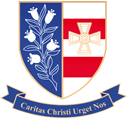Why Study Engineering?
Engineering underpins all products and services globally. Offered as a single award qualification, this course will give you generic, transferable skills which allow you to pursue a broad range of engineering pathways.
You will undertake four separate modules covering a range of technical skills and industrial practices.
The course shown below will come to an end in June 2026 with our current Y12 students (2024-2026). A new course will launch in September 2025 and more information will follow regarding this soon.
Course Content
Unit 1:
This Unit is a two-hour examination. The 80 mark paper is made up of a mixture of mathematics and physics questions which focus on engineering principles and their applications within given design scenarios.
Unit 2:
This Unit is an internally assessed project based team engineering task. Learners must work together, communicating effectively to complete the design and manufacture of a specified product considering effective people management, health and safety and appropriate material and process selection.
Unit 3:
This Unit is externally assessed through a set task completed under supervised conditions. Learners are given a case study to prepare two weeks in advance before a supervised period of ten hours where they will follow a standard development process interpreting a design brief, generating initial ideas, preparing a design proposal and evaluating it against appropriate design and engineering requirements.
Unit 9:
This Unit is a work experience module which has been selected in order to allow students to focus their studies into a specific area of interest, or to explore their future career opportunities. Areas where work experience may be considered include specialised engineering in a broad range of local companies, Computer Aided Design and Manufacture, Welding, Machining processes and Fabrication.
Careers/Higher Education Pathways
The breadth of this course means that the full range of engineering career options are available to learners including telecommunications, aerospace, space technology and exploration, civil engineering, architecture, robotics, automotive design, construction, marine engineering and many more.
Engineering Subject Presentation
Engineering Learning Journey Year 12 & Year 13
KS5 Engineering Knowledge Organiser
KS5 Engineering Bridging Course
For students starting Year 12 from 2025
Why choose Pearson BTEC Level 3 National Extended Certificate in Engineering (AAQ)?
The Pearson BTEC Level 3 National Extended Certificate in Engineering (AAQ) enables students to study the principles and applications of engineering including the fundamental mechanical, electrical/electronic and mathematical principles, the engineering sectors, engineering materials, engineering processes and emerging technologies.
Students will also develop important engineering design and project management skills when developing solutions to engineering challenges/problems.
What will you study as part of this qualification?
The qualification has four mandatory units covering the following topics:
- Engineering Principles: In this unit students will develop the skills and knowledge required to solve mechanical, electrical and electronic-based engineering problems by applying appropriate mathematical and physical science principles. (The unit will be assessed through one examination of 90 marks lasting 2 hours 15 minutes.)
- Engineering Applications: In this unit students will explore how advances in modern technology are reshaping how a wide range of engineering sectors function. They will also explore how engineers use their understanding of materials and processes to devise sustainable solutions to engineering problems. (The unit will be assessed through one examination of 70 marks lasting 2 hours.)
- Engineering Design: In this unit students will create a design solution in response to an engineering design challenge by developing three-dimensional (3D) models and two-dimensional (2D) detailed drawings including the use of a computer-aided design (CAD) systems and other modelling techniques. (Pearson sets the assignment brief for the assessment and this is marked by the centre.)
- Engineering Project: In this unit students apply project management principles to undertake an individual project and will develop conceptual or practical solutions to a chosen engineering problem related to a relevant engineering specialist area. (Pearson sets the assignment brief for the assessment and this is marked by the centre.)
What further learning will this qualification lead to?
This qualification can lead to progression to the following degrees:
- Mechanical Engineering BEng
- Civil Engineering BEng
- General Engineering BEng
- Electronic and Electrical Engineering BEng
Students may also progress to HNC or Foundation Degrees in Engineering.


